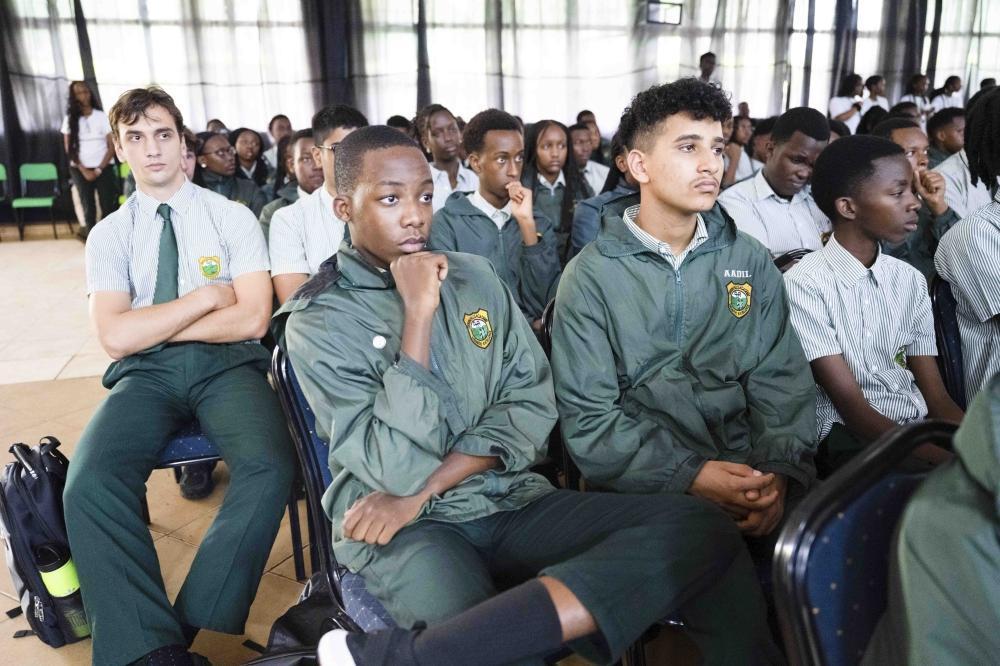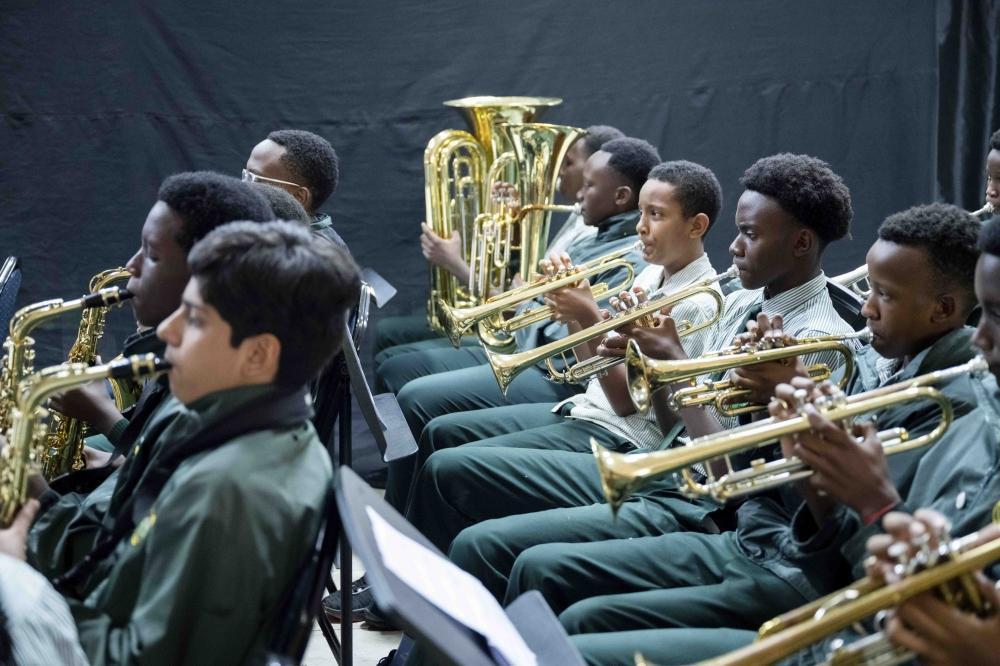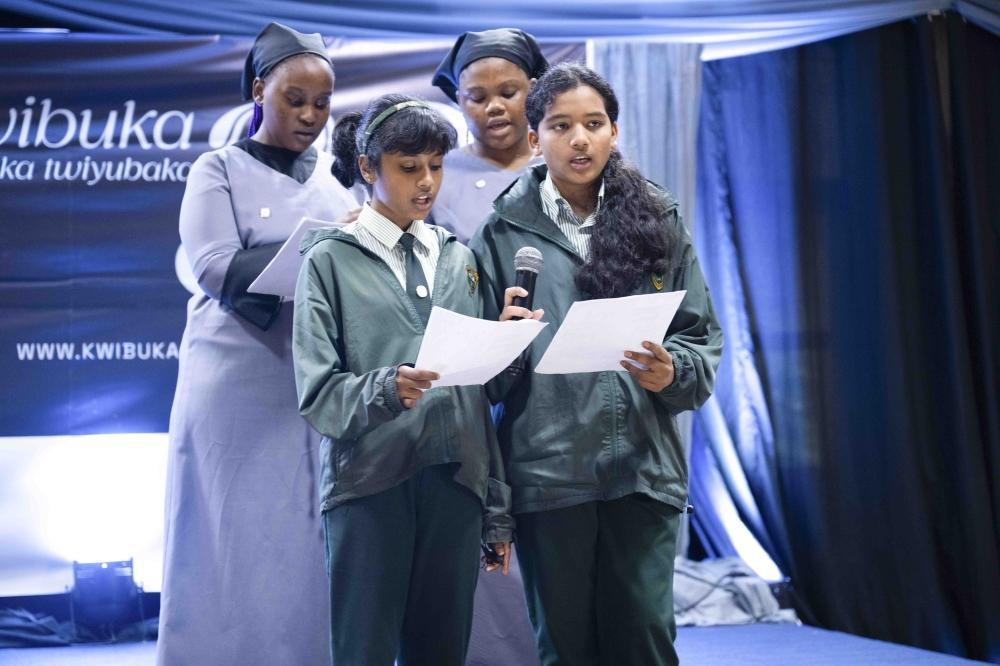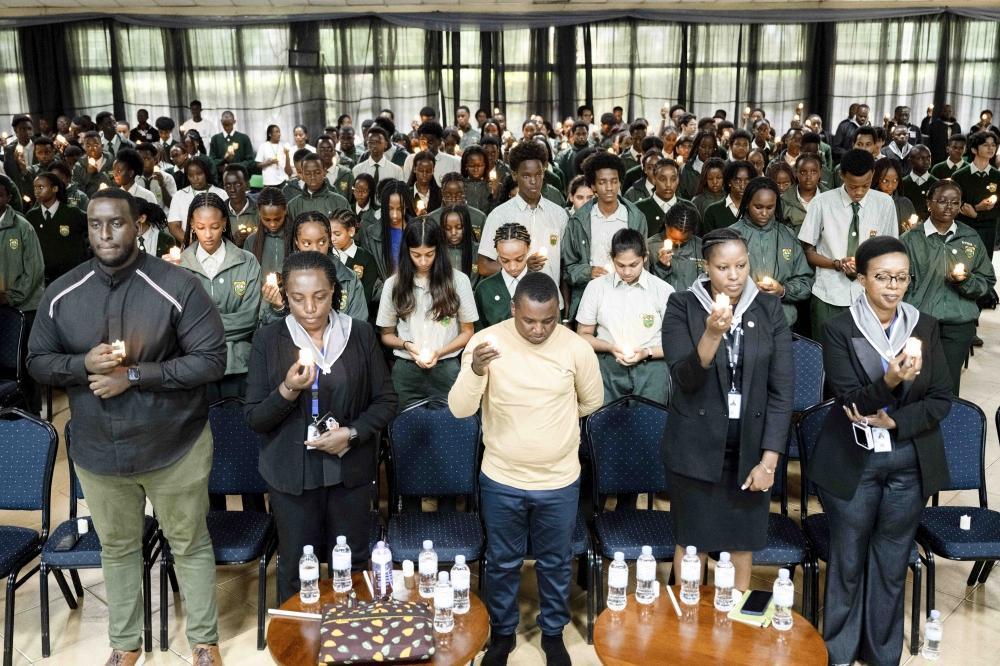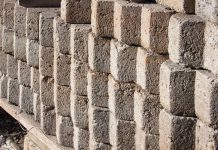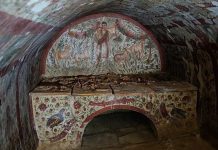Africa-Press – Rwanda. On Friday, April 26, Green Hills Academy (GHA) students, along with staff, parents, and invited guests, convened for the 30th commemoration of the 1994 Genocide against the Tutsi in Rwanda, a solemn occasion to reflect on the tragedy that befell Rwanda and to honour the memory of over one million people whose lives were cut short in three months.
The commemoration included various educational activities aimed at raising awareness about the genocide. Students engaged in discussions with guest speakers such as Norbert Musana, a genocide survivor who shared personal experiences.
Artistic expressions were showcased to uncover the genocide’s causes, consequences, and the significance of tolerance and social justice.
Additionally, moments of reflection and remembrance like a candlelight vigil, a walk to remember, and a minute of silence, were observed to honor the victims. A play performed by high school students added to the event’s significance.
Green Hills Academy (GHA) students during the commemoration event at the school on April 26
The school remains committed to ensuring that the lessons of history are not forgotten. It recognizes the importance of fostering a culture of remembrance, reconciliation, and unity among its learners, educators, and the wider community.
The New Times interviewed students on their understanding about the 1994 genocide against the Tutsi. Students noted that commemoration is a call to remember and act wisely. Below are some of their views:
Deborah Keza, grade 11 student
I learned about the 1994 Genocide against the Tutsi while living with my grandparents, but they didn’t discuss it much. Upon coming to GHA, I had more opportunities to learn about it through the provided resources. In April, we host events, visit genocide memorials, and everyone takes it seriously. My parents also contributed to my understanding of what happened, and why.
Students performing a play during the commemoration of the Genocide against the Tutsi
When I hear about the discrimination that occurred in schools where Tutsi students were denied access to education, in my understanding of equity and inclusion, I feel like it was really sad. But because of good leadership, the system tried so much to make people unite; like here at school. We know that we didn’t do the right thing in the past. Therefore, we’re trying hard and striving so that we all come together since we’re Rwandans. We need to renew, unite, and remember. We cannot allow that (divisionism) to happen again.
Students need to take steps to combat genocide denial, particularly in this era where misinformation is spreading rapidly on social media platforms. They should first learn about the history because you cannot oppose someone who just said anything without knowledge. They need to know what to answer. It is our responsibility to fight the genocide deniers.
Michel Kayitankore, 16-year-old student in grade 11
At age five or six is when I started seeing, every time, this time in April, my parents commemorating, TV shows airing different programmes talking about the genocide. The first word I saw was ‘Kwibuka’.
Michael Kayitankore, a student at Green Hills Academy speaks to journailsts
However, I didn’t understand what it meant. When I inquired, my parents briefly explained it as the 1994 genocide against the Tutsi, but I was too young to understand the full extent.
But as I grew up, at the age of 13, they started to tell me about the event’s gravity. I was told that the Tutsi were singled out to killed and Inkotanyi soldiers were involved in rescue efforts and a little bit about other aspects. However, they didn’t tell me the in-depth matters not until this 30th commemoration where I gained a comprehensive understanding of the tragic events.
Students performing a play during the event on Friday, April 26.
Therefore, through commemoration students can leverage their education and awareness of past atrocities to promote peacebuilding and reconciliation within their own communities. For instance, we ended our play with the song called ‘Powerful’ by Jussie Smollett which speaks about equality. That’s how we can nurture a peaceful society and ultimately the peaceful future of our country.
Pavarna Mahesh, a 16-year-old Singaporean currently in grade 11
Before moving to Rwanda five years ago, I had visited the country when I was younger. After relocating, I visited the genocide memorial, where I learned everything about the genocide against the Tutsi, in addition to GHA’s educational initiatives covering history and commemoration events.
I think everyone should take a chance to visit the memorials for it will help in the preservation of historical memory and the continued recognition of the genocide against the Tutsi, both locally and globally.
According to Ruth Mutoni, the Human Resource Director at GHA, the commemoration activities started with a visit to Kigali Genocide Memorial. School staff with diverse backgrounds went to witness first-hand information, including videos, tools, and images, particularly relevant in an era grappling with challenges of genocide denial.
She said: “We have a staff with a diverse community who has distorted information. This time we thought that we should set the bar high in terms of showing people who we are as a country, why we remember and why it is so important not to distort information.”
Mutoni affirmed that the school administration ensures that students are provided with accurate and comprehensive information about Rwanda’s culture and history, particularly the 1994 genocide.
She noted: “We enrol learners from all walks of life. It is important that they learn about our culture and the history of our country.
“A case in point is that we offer traditional dance and learn kinyarwanda. Even when we commemorate, we bring in speakers who are knowledgeable and have had experience about our history. We are very selective when it comes to who should speak to our learners.”
A group of students singing a commemoration song during the event on Friday, April 26.
For More News And Analysis About Rwanda Follow Africa-Press


